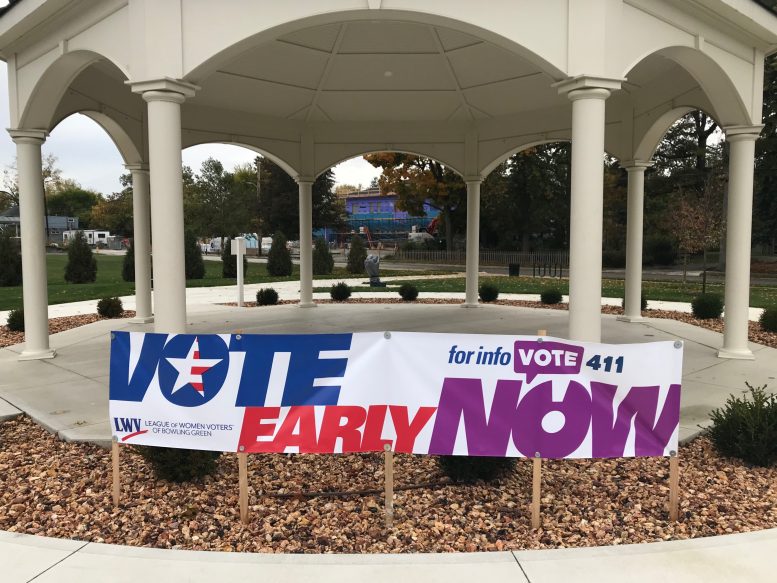The 2020 election in Ohio, Republicans will tell you, was perhaps the most successful in state history.
Ohio recorded its highest turnout ever, despite a pandemic that saw COVID-19 cases rising in the weeks leading up to Election Day. Secretary of State Frank LaRose led a major poll worker recruitment drive and coordinated safety protocols at the polls.
Just shy of 6 million Ohioans cast ballots last fall. While Republicans have alleged voter fraud in a number of other states, there have been no claims of fraud happening in Ohio — a state then-President Donald Trump won by a comfortable margin.
Nevertheless, Ohio Republicans introduced legislation last week to make numerous changes to how elections are conducted here.
House Bill 294 is among the hundreds of bills in nearly every state across the country that include provisions to restricting voting access in some way, per research by the Brennan Center for Justice.
The lead sponsors of HB 294, known as the “Election Modernization and Security Act,” are state Reps. Bill Seitz, R-Cincinnati, and Sharon Ray, R-Wadsworth. They are joined by more than two-dozen Republican co-sponsors, including State Rep. Haraz Ghanbari, R-Perrysburg.

Republicans have supermajorities in both chambers of the Ohio legislature and do not need any Democratic votes to enact these changes.
“I feel this bill will not only make it easier to vote in the State of Ohio but harder to cheat. A goal we can all agree upon,” Ray said in a provided statement announcing the legislation.
Indeed, HB 294 as initially written does include provisions that would make it easier to register to vote and would allow for online absentee ballot requests.
But the bill would also roll back the absentee ballot request period, place limitations on the use of ballot drop boxes and remove a key day of early voting.
Ohio Democrats are painting the entire bill as a voter suppression effort, unfavorably comparing it to a controversial voting reform bill enacted in Georgia. Marc Elias, a lawyer who has represented the Democratic Party and now leads a voting rights advocacy group, said the state would be sued if the legislature passes HB 294.
“Ensuring election integrity does not mean disenfranchisement or suppression of anybody’s vote,” Seitz said on the House floor last week as members debated voting laws.

LaRose has already endorsed the legislative effort.
“We already have some of the best elections anywhere in the country, but (this bill) would help us move forward and modernize,” LaRose said while visiting the Montgomery County Board of Elections.
Here is a chart showing some of the main provisions in HB 294 and the proposed changes from current law:
Other reactions
A number of organizations gave their early input on HB 294.
The Ohio Chamber of Commerce called the right to vote “a fundamental right and essential to a well-functioning democracy.” The group did not endorse nor express opposition to the bill, but called on lawmakers to “work across the aisle to ensure that voting in Ohio remains easy, safe, accurate and secure.”
The Ohio Voter Rights Coalition credited the bill with including some provisions it has pushed for — such as automated voter registration and allowing electronic utility bills be used as a form of identification.
“Nevertheless,” a statement reads, “that does not offset our concerns about provisions that would unfairly and unnecessarily create new barriers for Ohioans to exercise their freedom to vote.”
The National Democratic Redistricting Committee, led by former U.S. Attorney General Eric Holder, said in its own statement that “anti-voter bills” in Ohio and elsewhere are meant to keep Republicans in power, “even if it comes at the expense of our democracy.”





